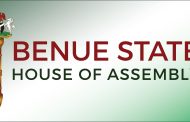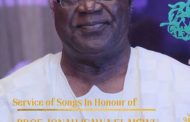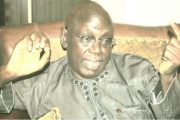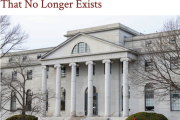For a combination of reasons, nearly all social scientists have gone into empirical research, leaving theorizing fallow. For one, empirical research brings more money than theorizing. To move away from involvement in empirical research is akin to refusing to work. It won’t be long before such a scholar is politely reminded that s/he is a pauper and everything that goes with being a pauper or being perceived so. This is more so that such a reminder has a theological basis in the Bible and, I am sure, the Quran too, declaring that he who does not work is not entitled to eat. To avoid that, most people have gravitated in that direction.
But theory is where the power lies and, in the African context, power is what matters more than money because power is what can bring emancipation from Africa’s heritage of suffering. In the absence of that master-story, narrative or theory situating the African experience in a liberatory manner, Africans have become what Theodor Adorno says about how “domination delegates the physical violence on which it rests to the dominated”.
There is thus a tragedy to be combated when a Jibrin Ibrahim is missing in the global theoretical space at a time of great ferment of ideas. But why a Jibrin Ibrahim? Why not any other of our numerous Political Scientists?

From L – R is Jibo, Hauwa Mahdi, his classmate at Zaria and John Haynes, ex-literature teacher at ABU, Zaria
The answer is straight forward. Jibo, as he is more popularly known, is the one who could have been that theorist. Look at his writings in the eighties. He was heading somewhere. Take his “Towards the Political Economy of Mass Communication in Nigeria: Some Parameters for a Theory and an Investigation”, for example. With minor re-working, he can produce no less than five different essays from that paper alone today, taking him to the global high table of contemporary social theory, be it on the economic determinism controversy in Marxism; the reconceptualisation of power; the post-Marxist treatment of hegemony and to discourse theory with particular reference to the mass media. Aside from such substantive issues, he was already into one of the naughtiest questions in contemporary social science. It is the question of how ideology is produced in concrete practice in media organisations, to use his own words. Till today, there is no agreement on that. A case in point may be enough. In 2000, Joanne Sharp, now at the University of Glasgow published her truly ground breaking PhD research into a book titled Condensing the Cold War: Reader’s Digest and American Identity. Then Gearóid O’Tuathail, the US based Irish Geographer whose own PhD can be credited with creating the field of critical geopolitics came up with a critique of Sharp. His criticism is that the process or mechanism by which Reader’s Digest constructed the defunct Soviet Union as America’s Other were missing in the work. So, that level of scholarship was where Jibo was heading almost two decades earlier.
Then he had the opportunity to take a PhD in France where Philosophy and/or theorizing is taken seriously. The last point is the singularity of shaking up African social science and its practitioners with his 1993 article, “History as Iconoclast: Left Stardom and the Debate on Democracy”. Content wise, it wasn’t such a great piece but it was a great one in the framing game. Since it is in the framing game that language achieves the circulation of power, Jibo again advertised himself as the African scholar to watch.

Prof Oculi
Professor Okello Oculi had been complaining that African social science habour a weakness of bashing imperialism and forgetting what he calls horizon-sketching. Horizon sketching is where the revolution is, not as much in anti-imperialist talkativeness. Jibo was someone who appeared to have, consciously or unconsciously, agreed with Oculi.
Then the lull set in. Could that have come from the shocker for him from Zaria? Very unlikely! As he himself would hardly disagree, Zaria was no longer where being chalked out from at that time could be considered such a setback. The place had started a morbid unraveling. Was/is it civil societism? Perhaps! Or did the lull come from empirical research and its univocal constraint? Certainly not! If Jibo had wanted where to nestle and theorise, he could have gotten it without starving. So, unless he speaks, no one may know what happened.
All we can see is that he is a case of missing in action. He is not there at all in the conclave of theorists. One, he is a theorist of the everyday, not the type of theory we are talking about here. Two, he has no theoretical homestead now. He is neither a liberal scholar which realm he seems to have been forcing himself nor is he an orthodox Marxist anymore, having once correctly stated that he had exhausted the analytical promise of Marxism. But he cannot be found in critical constructivism just as he is certainly not a card carrying post-structuralist scholar nor a post colonialist. Elements of each can be seen in his analysis, making it difficult for him to live up to his ABU, Zaria Staff Club name many years back. Then, he was called Jibogram which meant “Jibo’s unit of measurement” or something like that. It spoke to the frontal character of his social analysis. Age, experience and interests are bound to have been shaping him away from such ‘matter of fact’ intervention but not to the extent of the too many silences that dot his scripts now.
Yes, this might be the era of eclectic analyticism and the claim for it that no one perspective can bring out all the angles to a subject-matter but that does not say we must carry all the perspectives on our head each time we write.
Anyway, the point now is whether Jibo can pay his theoretical debt. Yes, he can. He is not one of those who need to return to formal schooling in the form of a doctoral programme or anything of that nature before he can dance theoretically. He is already in top form. What is missing is a core of dedicated critics of his theoretical slack and who can take up the duty of reminding him of his indebtedness until he pays.
Happy birthday, Prof!




























